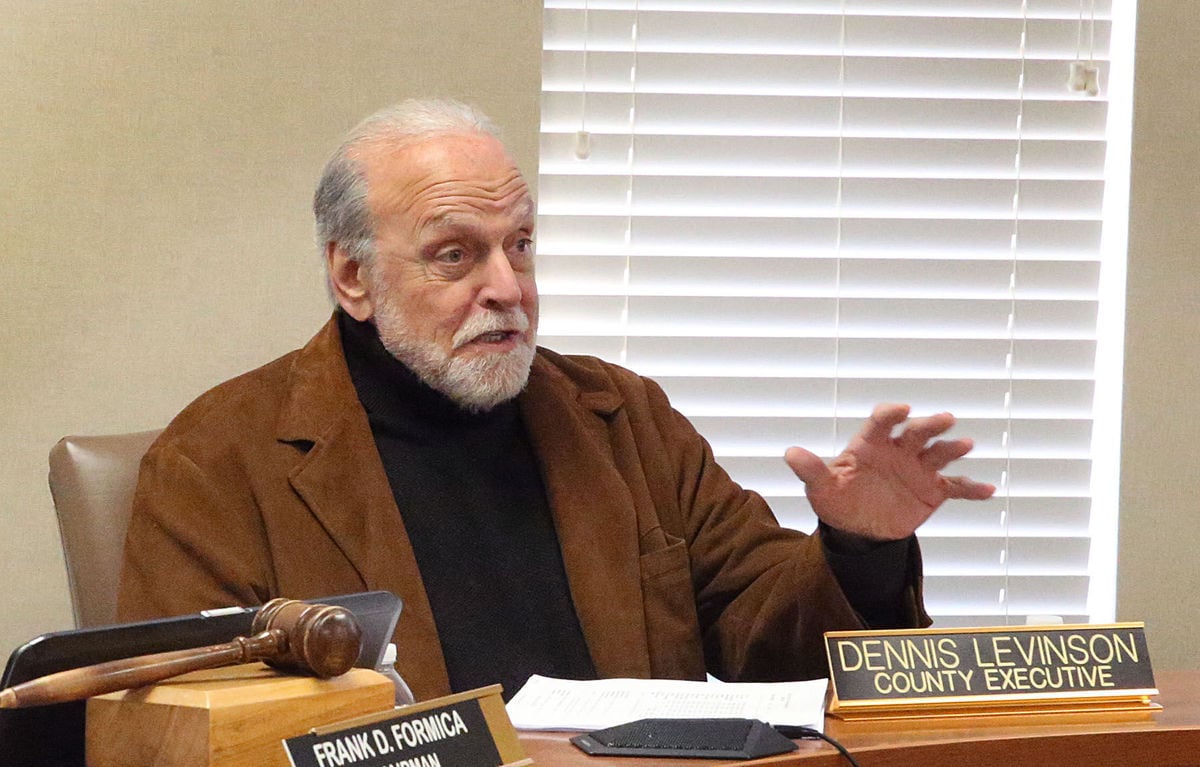Atlantic City County Executive Dennis Levinson Opines PILOT Program Needs Amended
Posted on: April 24, 2017, 02:00h.
Last updated on: April 24, 2017, 11:15h.
Atlantic City County Executive Dennis Levinson writes in a recent op-ed that the city’s PILOT program, the Payment in Lieu of Taxes for casinos, is hurting local government and residents by allowing the resorts to pay less tax than they would otherwise be on the hook for.

Levinson, whose son Matthew is the chairman of the New Jersey Casino Control Commission, writes in thePress of Atlantic Citythat the PILOT deal is working for the casinos, and hurting everyone else.
Introduced by New Jersey Senate President Stephen Sweeney (D) and cosponsored by four other democrats, the current PILOT, formally known as the Casino Property Tax Stabilization Act, freezes property tax increases on Atlantic City casinos for 10 years. In exchange, the remaining gambling resorts must collectively pay the city $120 million annually.
“It stabilizes property taxes for casinos at the expense of every non-casino property taxpayer,” Levinson writes in his editorial. “Opposition to the PILOT is not an issue of Atlantic County vs. Atlantic City. It is about property tax fairness.”
Levinson is calling on the state legislature to amend the law to mandate more money from casinos flow to Atlantic County.
Wrongful Assessment
PILOT gained support after four Atlantic City casinos closed in 2014. A fifth, the Trump Taj Mahal, shuttered in 2016.
Casinos said their assessed property values, which are used to calculate taxes, were heavily inflated after the recession and made sustainability impossible. With the entire country in economic turmoil, and neighboring states like Pennsylvania, Connecticut, and Maryland expanding gaming, Atlantic City’s economy plummeted.
As gaming and tourism revenue went south, Atlantic City officials increased resorts’ property assessments to fund the local government. The state intervened with PILOT, and subsequently took control of the city’s financial governance.
PILOT, in Levinson’s mind, protects casinos, and gives the tab to individual taxpayers.
One example he cites is MGM’s buyout of Boyd Gaming’s 50 percent stake in the Borgata. Last August, MGM paid Boyd $900 million to take total control of Atlantic City’s richest gambling floor. But the Borgata was recently reassessed at only $850 million.
The disparity shows what MGM and Boyd believed to be a fair valuation ($1.8 billion) of the Marina District resort, but at the same time the Borgata is paying taxes at a flat rate that significantly reduces its tax obligation.
Plenty of Opposition
Levinson, who is the chief official in the county’s executive branch, isn’t alone in voicing opposition to PILOT. Glenn Straub, one of the city’s newest owners after buying the former Revel in 2015, says he can’t be held accountable for paying into the tax scheme because he believes gaming regulators are preventing him from reopening his casino.
Straub says the resort, now named TEN, should pay taxes based on what it is, and it isn’t a casino. “As an abandoned building, we want the value of an abandoned building, not the value of a casino hotel,” Straub said recently.
As individuals continue to see their personal taxes increase, casinos enjoy a flat rate despite rebounding gaming revenues. The seven remaining casinos generated a $200.1 million win in March, a nearly seven percent year-over-year gain.
“Non-casino property taxpayers should not have to pay more because the casinos have their taxes frozen for 10 years,” Levinson concluded. “Delaware, Nevada, Maryland, New York and other gaming states somehow assess their casinos fairly and don’t need a PILOT. Why do we need one in New Jersey?”
No comments yet